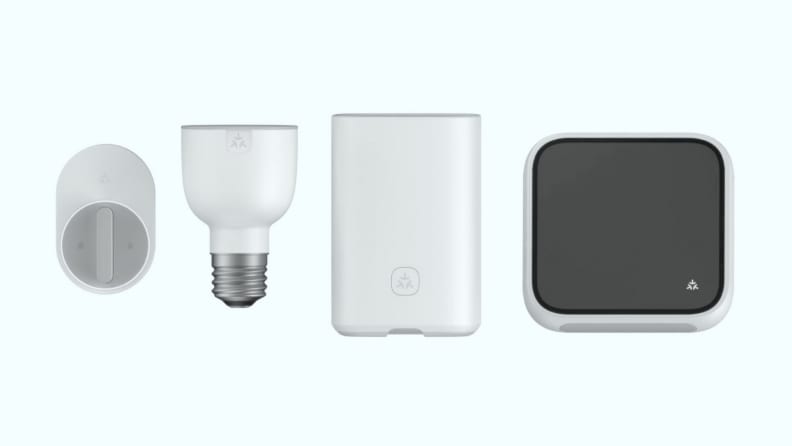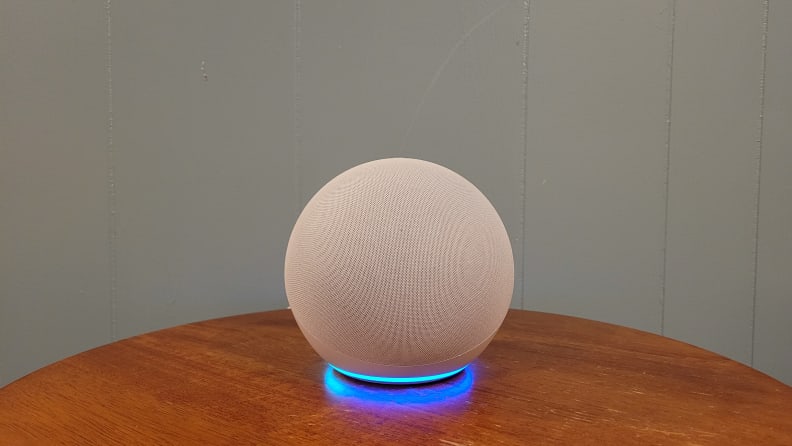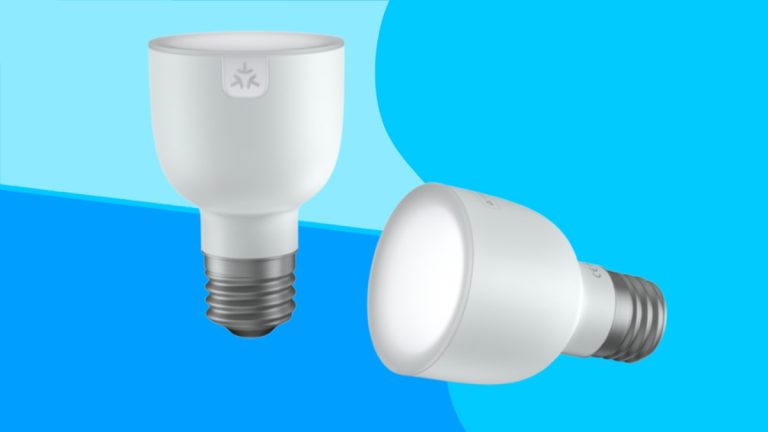So far, smart home devices haven't all worked together very well. Previously, if you wanted to fully equip your smart home with the latest and greatest technology, you first needed to check whether all new smart plugs, light bulbs, video doorbells, etc. were compatible with your existing smart technology. there was. . Otherwise, you could end up managing and controlling your device from six different apps.
But that is now finally changing. A partnership between smart home manufacturers was formed several years ago, and that partnership is finally coming to fruition. Matter is a new protocol born out of TeamUp that essentially allows you to connect any supported device to any supported system. This means you no longer have to worry about finding only devices that support your ecosystem.
what happened?

Credit: Connectivity Standard Alliance
The Matter logo will appear on products that work with the Smart Home Alliance.
Matter is an open source interoperability standard that many smart home device manufacturers have agreed to use as an industry standard for their products. The result is a more seamless experience for customers when purchasing and integrating smart home devices, as well as improved security and reliability for the Internet of Things (IoT).
Dozens of smart home companies are part of the alliance that created Matter, including Apple, Google, Amazon, and Samsung.
Some products made by different companies already work together, but the experience isn't always great.
For example, you still had to download a third-party app to connect your device to your preferred smart home ecosystem. This means that in a decent-sized smart home, you could end up with dozens of apps that you don't actually use. At Matter, that's finally starting to change.
Additionally, Matter helps small businesses develop new products that can reliably work with all of their other smart home devices and hubs.
Additionally, since Matter is open source and not owned by anyone, there are no licensing fees associated with its use.
This collaboration is not entirely new. It primarily builds on previous work done by the Connectivity Standards Alliance (formerly known as the Zigbee Alliance).
The previous effort was called Project CHIP (Connected Home over IP). However, the big news recently is that devices that support Matter are finally starting to roll out. Many of the devices already available will receive software updates to support the new standard.
Matter works over Wi-Fi, Ethernet, and more importantly, Thread. We'll talk about threads a little later.
What does matter mean to you?
If you have a smart home, Matter makes it super easy to buy new devices, set up new products, and manage all your connected devices. That's because the majority of new smart home devices support Matter. So you no longer need to find out if your device works in a particular ecosystem, you just need to check if it works with Matter.
Matter gives you more freedom to use the products and apps you want. So far, devices that support HomeKit have been a bit limited, but that could change with Matter. Not only that, but many apps will soon support Matter as well. So you can control all your smart home devices while finding the apps you love most.
If you don't have a smart home, Matter makes it easy to get started, but there are still a few things you need to do.
What do I need to use Matter?

Credit: Reviewed / Sarah Kovac
Most Amazon Echo speakers and displays support Matter, including the 4th generation Echo (pictured).
To get started with Matter today, you'll need a Matter Controller and a Matter device. The Matter controller essentially acts as the hub of your Matter setup, allowing you to connect new devices, manage connected devices, and act as an intermediary between your smart home and devices such as your phone. Masu.
Thankfully, Matter controllers are fairly widely available. The latest smart speakers from Amazon, Apple, and Google all support Matter, as do devices like Apple TV and Samsung's SmartThings hub (like your TV).
Modern smartphones can also act as a Matter controller, but considering that you are not always at home and your phone is not always on, you can use another Matter controller that is always on and connected to the network. It's worth getting a controller.
To actually control these Matter controllers, you need an app. It's usually easier to use first-party apps that work with your controller. For example, if you have a HomePod, it's usually easier to use the Apple Home app.
There is a difference between a Matter controller and a Matter device. Matter controllers may not be controlled by other Matter controllers.
For example, you can't use Amazon Echo to control your Apple HomePod. However, you will be able to use both to control your smart home devices.
To get the most out of Matter, you'll also need a Thread router. Thankfully, most Matter controllers are also threaded border routers, so you probably don't need to buy one separately. Some new Wi-Fi routers are also Thread routers.
What is a thread?
Threads are undoubtedly the best way for most Matter devices to connect to each other. Think of it like this: Matter is the language your device speaks, and threads are the communication method your device uses to speak. In comparison, a human being speaks one or more languages and can communicate in those languages by speaking, texting, and emailing. .
Matter devices can also communicate in multiple ways. Threads are ideal for low-power devices such as switches and lights that only require basic signal sending and receiving. However, devices such as cameras communicate over Wi-Fi or Ethernet, which provides higher bandwidth.
One of the main benefits of Thread is the ability to create mesh networks. This means that all Thread devices in your network can communicate with each other instead of just with your Wi-Fi router. The advantage is that the responsiveness and reliability of the device is significantly increased.
Which smart home devices work with Matter?
There are plenty of Matter controllers out there, including the latest smart speakers from top tech companies like Apple, Amazon, and Google. At the time of this writing, there aren't that many Matter devices, but they're expected to start rolling out rapidly in the coming months.
At this time, the TP-Link Tapo smart plug supports Matter and is one of the only plugs currently available for purchase. TP-Link says it plans to launch more Matter-compatible devices in the near future and update the app to function as a Matter control app.
$20 on Amazon
Eve also has some devices that support Matter. For example, the Eve Energy smart plug and Eve Door & Window sensor are all getting updates to offer Matter support. Eve's future products will also support Matter.
$40 on Amazon
$40 on Amazon
Philips Hue bulbs will support Matter in the coming months, but you'll still need to use a Philips Hue hub to use your smart lights. Bulbs cannot be used alone.
Philips' parent company Signify, which also rolls out the Wiz smart home brand, says all products built from the second quarter of 2022 onwards will receive an update with Matter support.
Other companies will also launch Matter devices. Nanoloaf's new Essentials line supports Matter, and Meross offers the new Matter Smart Wi-Fi Plug Mini. Aqara, Schneider, and others have also committed to updating some of their existing products to support Matter.
There are some device types that don't support Matter, at least at launch. The biggest one is the smart home security camera, which won't support Matter until a future update. This also includes garage door openers, smoke detectors, and ambient occupancy sensors.
Audio streaming is also not currently implemented in Matter. Additionally, although the appliance is not currently part of the Matter standard, it may be added in a future update.
Will devices I already own work with Matter?
perhaps. It depends on the company and device. If you are unsure, it is worth contacting the manufacturer that made your device.
There are some big ones though. The current generation Nest Thermostat (not the popular Nest Learning Thermostat) will support Matter through future updates, as will Nest Wifi. Other examples include Philips Hue and some of Eve's devices.
We recommend that you only buy new devices that support Matter, as long as they fall into the Matter standard category. This way, you can future-proof your device.
$113 on Amazon
Are there any drawbacks?
The Matter standard is still in its early stages and may not provide all expected features. A good example is energy monitoring. Although Matter supports smart switches, it does not yet support the energy monitoring features that some switches offer.
Thankfully, that doesn't mean you can't use energy monitoring. Manufacturers can still include additional functionality in their apps. This means you can continue to use those additional features with additional apps.
As Matter evolves, some of these more advanced features will begin to be enabled. This also includes additional types of devices that will be supported in the future.
Prices are accurate at the time of publication, but may change over time.
Reviewed's product experts have all your shopping needs covered. Follow Reviews on Facebook
twitterInstagram, TikTok, or Flipboard for the latest deals, product reviews, and more.

